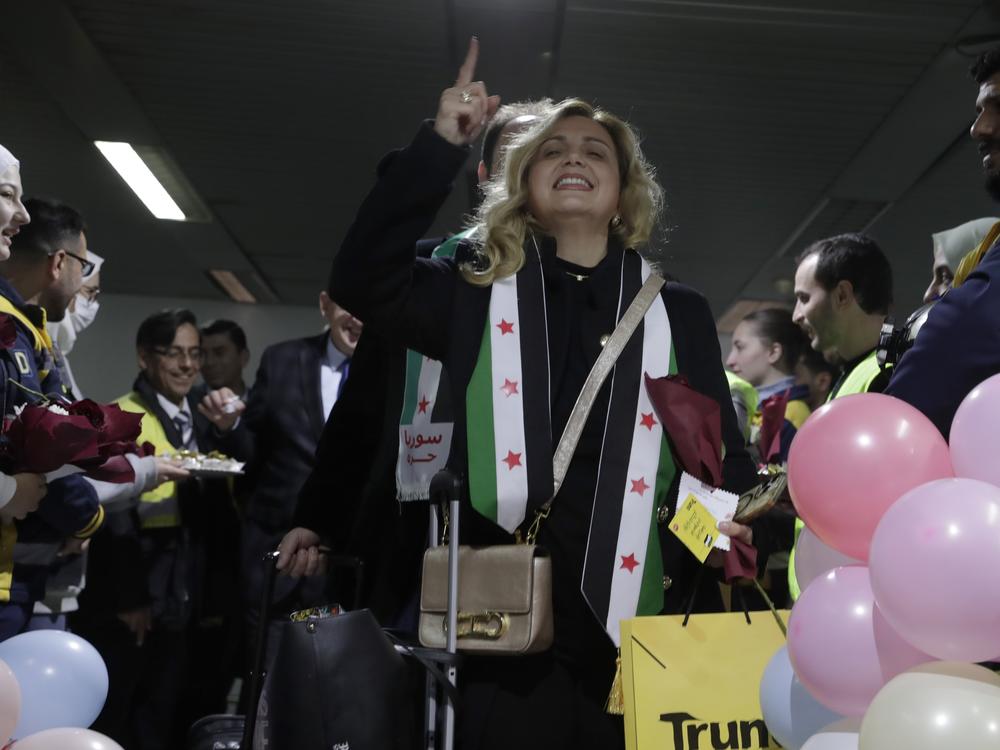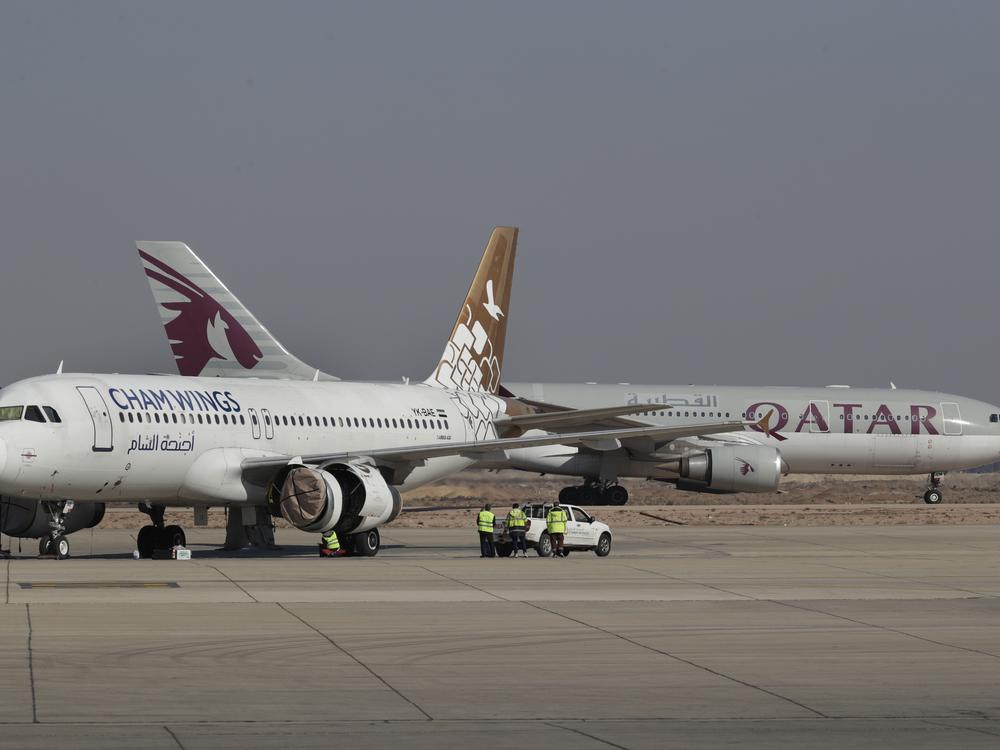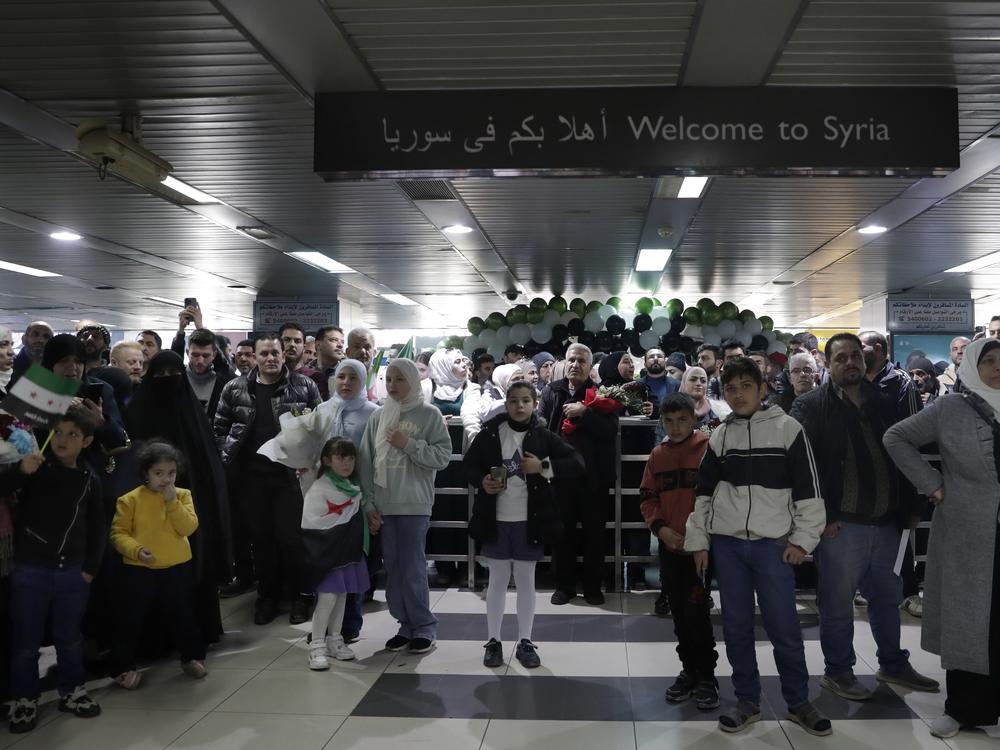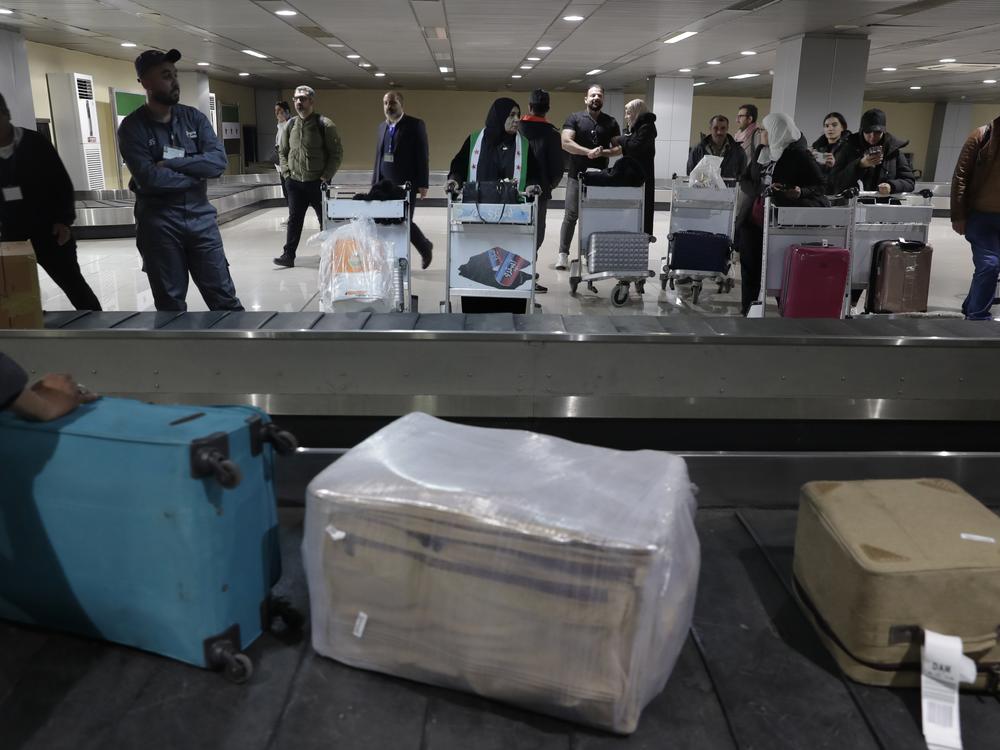Section Branding
Header Content
First international commercial flight since Assad's ouster lands in Syria
Primary Content
DAMASCUS, Syria — The first international commercial flight since the fall of former Syrian President Bashar al-Assad landed Tuesday at the Damascus airport.
The Qatar Airways flight landed at Damascus International Airport, greeted by the passengers' relatives and friends inside a terminal building.
Ashad al-Suleibi, head of Syria's Air Transport Authority, said Qatar had provided assistance in rehabilitating the airport, which had suffered from years of neglect as well as sustaining damages from periodic Israeli airstrikes.
"Honestly, there was a lot of damage from the (Assad) regime to this lively area and this lively airport and also the Aleppo airport," he said.
Many passengers were Syrian nationals coming come for the first time in more than a decade.
Osama Musalama, who came from the United States, said it was his first visit since before the civil war that started in 2011.
"I lost hope that I would come back to Syria," he said. "We were waiting for this moment and lost hope, but thank God now the country is back to its people."
Separately, Jordanian state-run Petra news agency reported that a Royal Jordanian Airlines plane departed for Damascus on a test flight. The head of Jordan's Civil Aviation Regulatory Commission, Capt. Haitham Misto, who was on board the flight with a team of specialists, said that the aim was to evaluate the technical condition of Damascus airport before resuming regular flights.
Since the lightning rebel offensive that unseated Assad a month ago, Arab and Western countries that had cut off relations with the former government have been reopening diplomatic relations with Syria's new de facto authorities, headed by the Islamist former insurgent group Hayat Tahrir al-Sham, or HTS.
Syria's new foreign minister, Asaad al-Shibani, has traveled to Qatar, Saudi Arabia and the United Arab Emirates in recent days. The Gulf countries are likely to be key to funding Syria's reconstruction after nearly 14 years of civil war that preceded Assad's ouster.
On Tuesday, al-Shibani traveled to Jordan to meet with his counterpart in Amman. Jordan's foreign ministry said the officials were set to discuss "mechanisms of cooperation in many areas including borders, security, energy, transportation, water, trade and other vital sectors."
Under Assad's rule, Jordan had been a main conduit for smuggling highly addictive Captagon amphetamines produced in Syria into Gulf states, which was a point of tension between the two countries.
Syria's new authorities have made a show of cracking down on the Captagon trade, dismantling former factories in locations including the Mazzeh air base in Damascus, a car trading company in Latakia and a factory that once made snack chips in the Damascus suburb of Douma.
"The new situation in Syria has also ended the threats that previously threatened the security of the Kingdom (of Jordan), with regard to drugs and Captagon, and we pledge that this thing has ended and will not return again," al-Shibani said in a joint news conference with Jordanian Foreign Minister Ayman al-Safadi.
Al-Safadi said that his country supports the Syrian people as they work to "rebuild their homeland on the foundations that preserve its security, stability, sovereignty and unity and fulfill the rights of its people," adding that Jordan is "ready to provide electricity to our brothers immediately, and we are also ready to work together to provide gas."
Syria, targeted by stringent Western sanctions, has been in a prolonged economic crisis and Syrians receive only a few hours of state-provided electricity per day.




